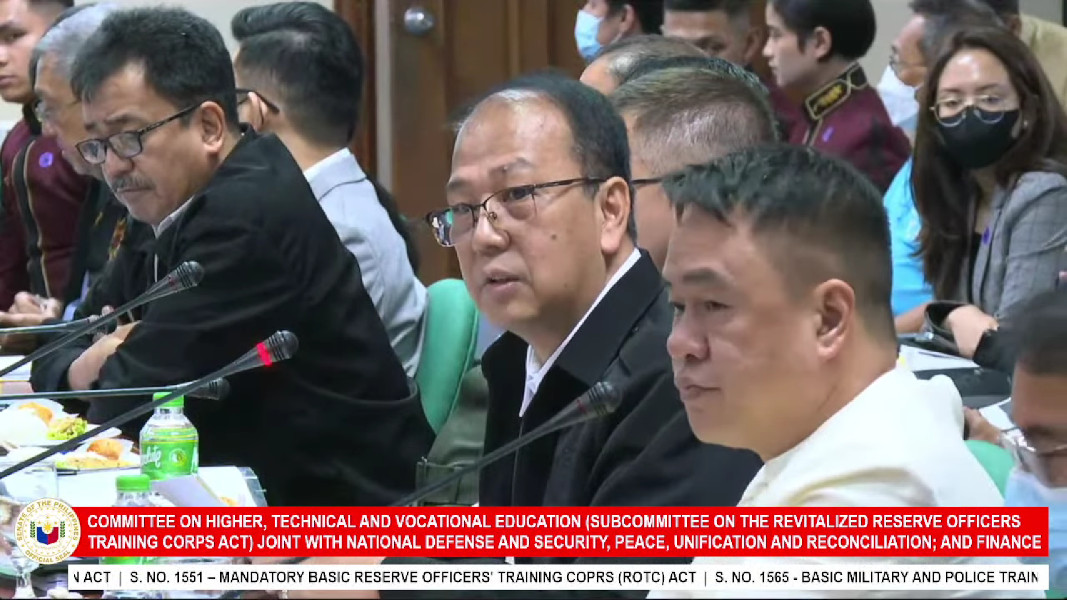Editor’s note: This tracker was updated on July 22, 2025. It was first published on July 17, 2023
(Updated) Strong opposition from active-duty officers of the Armed Forces of the Philippines and other uniformed services against mandatory contributions to their pension has stalled legislation of a measure for a unified pension system for the military and other uniformed personnel.
This was among the three pieces of legislation related to the strengthening of the country’s armed forces that President Ferdinand Marcos Jr. asked Congress in his first State of the Nation Address in 2022.
The reform measure, which was intended to prevent a “fiscal collapse” in a few years, was in the top priority list of the Legislative Executive Development Advisory Council’s common legislative agenda until June 2024, when it was relegated to “second priority.”
The House approved its version of the bill on Sept. 25, 2023 and transmitted it to the Senate two days later. In November 2023, four Senate committees consolidated four similar bills and the House version under Committee Report 173, which remained unacted on until the 19th Congress adjourned sine die last June 11.
The bill primarily seeks to provide a unified system for the separation, retirement and pension of the military and the uniformed personnel of the following agencies: Armed Forces of the Philippines, Philippine National Police, Philippine Coast Guard, Bureau of Fire Protection, Bureau of Jail Management and Penology, Bureau of Corrections and National Mapping and Resource Information Agency who were Philippine Navy officers and enlisted personnel, as well as members of the defunct Philippine Navy Coast and Geodetic Survey.
It intends to ensure a sustainable, permanent, viable and acceptable solution to the “ballooning effect” budget of the current pension system without diminishing the benefits that the retirees and current active members are entitled to under existing laws.
However, economic authorities have warned that the current MUP pension system may lead to fiscal collapse as the government is fully funding this without any contribution from retirees and active personnel.
MUP officials raised questions about the government’s ability to meet its current pension obligations and the economic team assured them of the state’s commitment. But Deputy Treasurer Erwin Sta. Ana said the government alone will not be able to sustain the pension fund in the long run, that is why reforms are necessary.
Former Finance secretary Benjamin Diokno initially proposed a blanket mandatory contribution covering both active personnel and new entrants, which was opposed by MUP officials. The current economic team, led by his successor Ralph Recto, now backs the proposed Senate measure on MUP pension reform that only requires mandatory contributions from new entrants to the Armed Forces of the Philippines and other uniformed services.
Also in his 2022 SONA, Marcos sought an amendment to the 1935 National Defense Act “to provide a change in the military structure of the AFP that is more responsive to the current and future nonconventional security threats to the country’s territorial integrity and national sovereignty.”
After more than two years, Congress delivered the measure, now known as Republic Act No. 12024, or the Philippine Self- Reliant Defense Posture Program Act, signed into law on Oct. 8. 2024
It aims to develop the country’s defense industry by creating ways to boost the local production of defense equipment and is seen to complement the recently-adopted Comprehensive Archipelagic Defense Concept to enhance maritime security and the defensive posture of the country.
Another priority bill Marcos mentioned in his first SONA and which was stalled in the legislative mill was for the revival of both the mandatory Reserve Officers’ Training Corps and National Service Training Program.
In December 2022, the House approved a measure that will establish instead a mandatory National Citizens Service Training program and made the ROTC an option for students at the college level.
In contrast to the House measure’s optional ROTC course, the counterpart bill in the Senate seeks to reinstate the mandatory ROTC. The Senate, however, failed to consider Committee Report 62, submitted by three committees in March 2023.
The bill had also been relegated to “second priority” in the LEDAC common legislative agenda.
In the 2023 and 2024 SONA, the president did not mention any promise related to the armed forces. None of the three bills he asked Congress in 2022 to pass were all still pending then, mostly in the Senate. It was only in October 2024 that the amendment to the 1935 National Defense Act became law.
Of the three SONA promises in 2022, only one was fulfilled, two were stalled in Congress.
Check the status of Marcos’ SONA promises related to the armed forces:


